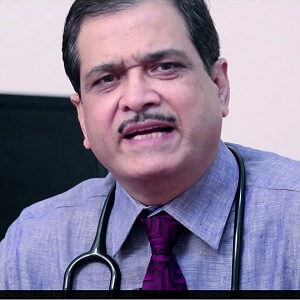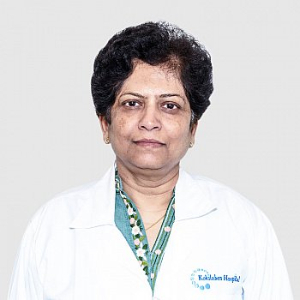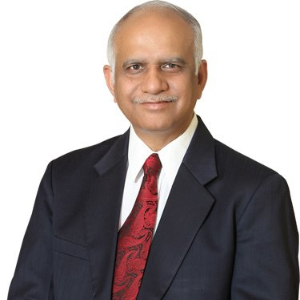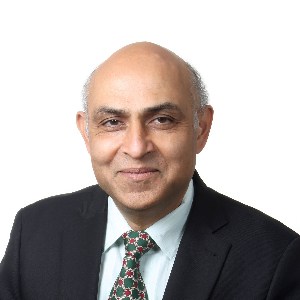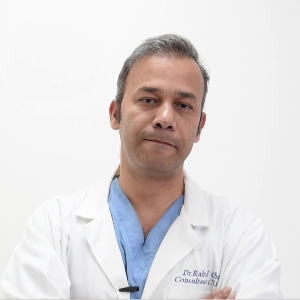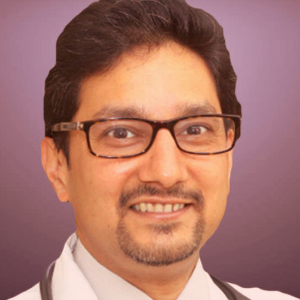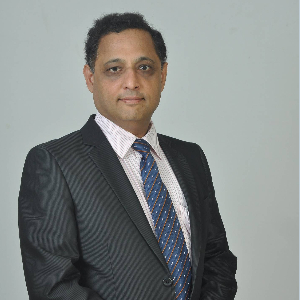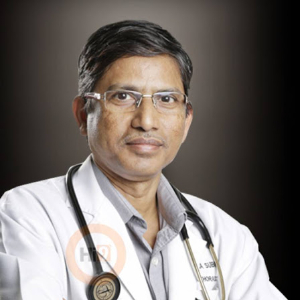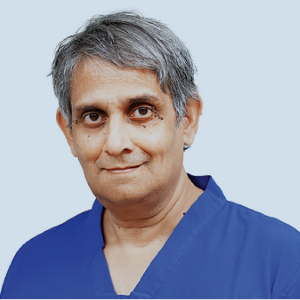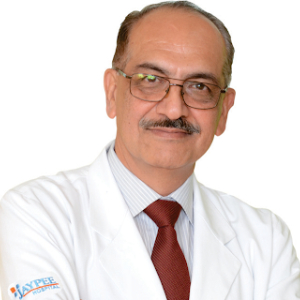Best Doctors in India for Myocardial Perfusion Imaging
- Interventional Cardiologist, New Delhi, India
- Over 26 years experience
Profile Highlights:
- Dr. Rajeev Kumar Rajput is one of the best Cardiologists in India with nearly 23 years of experience. He is a clinical cardiologist engaged in diagnosing and treating cardiovascular diseases.
- Dr. Rajput is currently working as a senior consultant with Indraprastha Apollo Hospitals, New Delhi, and also offers patient care at the Heart & Gynae Clinic.
- Dr. Rajeev Kumar Rajput specializes in Angiography and Interventional Cardiology. The treatments provided involve Neonatal and Infant cardiac surgeries, Device Closure, and Valve replacement. He has expertise in Aortic Aneurysm Surgery, Vascular Surgery, Percutaneous Coronary Interventions, Endovascular Repair, Cardiac Catheterisation, Open Heart Surgery, and MV replacement.
- Dr. Rajput is credited with publishing several papers in noted medical journals.
- Pediatric Cardiologist, Mumbai, India
- Over 20 years’ experience
Profile Highlights:
- Dr. Snehal Kulkarni is a renowned pediatric cardiologist who specializes in the management and treatment of fetal cardiac diseases, non-invasive pediatric cardiology, and Adult Congenital heart diseases.
- She is an expert in Diagnostic and Interventional Cardiac Catheterization, Stent implantation, Cardiac Pathology, and Balloon dilatation.
- She has more than 2 decades of experience in pediatric cardiology and has acquired her training from prestigious institutions in USA.
- Cardiac Surgeon, New Delhi, India
- Over 36 years’ experience
Profile Highlights:
- Dr. S. K Sinha is one of the top-most reputable cardiac surgeons in India who has performed over 10000 heart surgeries, 2000 minimal access cardiac surgeries cases and has 36+ years of rich experience.
- As one of the best cardiac surgeons in India, Dr. Sinha has both performed and taken lead as the administrative and clinical mentor in several cases where his supervision and mentorship paired with his vast knowledge have helped future cardiac surgeons shape their careers.
- Senior Consultant - Cardiology, Dwarka, New Delhi, India
- Over 35 years’ experience
Profile Highlights:
- Dr. Monik Mehta is one of the best interventional cardiologists in India for the implantation of heart failure devices.
- His specialization also lies in performing complex Angioplasties and complex coronary interventions.
- Having received his training from Mahidol University, Bangkok, Dr. Monik Mehta has also worked with the United Nations as a cardiologist in Cambodia.
- Currently, he works as a Senior Consultant – Cardiology, in Manipal Hospitals, Dwarka, New Delhi.
- Senior Cardiothoracic and Heart Lung Transplant Surgeon, New Delhi, India
- Over 23 years’ experience
Profile Highlights:
- Dr. Rahul Chandola is a renowned cardiothoracic and vascular surgeon in India specializing in Adult CTVS along with heart and lung transplant surgeries.
- He is an expert heart and lung transplant surgeon and has performed over 100 heart transplant surgeries with successful results in both adult and pediatric patients.
- Currently, he works as a Senior Cardiothoracic and Heart Lung Transplant Surgeon in PSRI Hospital, New Delhi.
- Interventional Cardiologist, New Delhi, India
- Over 20 years’ experience
Profile Highlights:
- Dr. Vishal Rastogi is a leading Interventional Cardiologist in Delhi specializing in Heart Failure Management.
- Dr. Vishal Rastogi has over 20 years of experience in the field and holds the credit for the largest number of Impella Left Ventricular Assist Device (LVAD) implants in critically ill patients in India.
- He has performed a large number of Coronary and Peripheral Angiographies and diagnostic cardiac catheterizations in both adult and pediatric patients among several other interventional cardiac procedures.
- Cardio Thoracic & Vascular Surgeon, Mumbai, India
- Over 30 years’ experience
Profile Highlights:
- Dr. Anvay Mulay is a well-known cardiothoracic and vascular surgeon in Mumbai and one of the best heart transplant surgeons in India.
- He holds an extensive experience of close to 3 decades and has been associated with renowned cardiac hospitals in India, US, and UK.
- Dr. Mulay is one of the top surgeons for Adult cardiac procedures in India. He was the first to introduce LVAD in West and Central India when he performed the surgery on a 49-year-old patient.
- Cardiothoracic & Vascular Surgeon, Hyderabad, India
- Over 30 years’ experience
Profile Highlights:
- Dr. G Rama Subramanyam is a well-known cardiothoracic and vascular surgeon who specializes in open-heart surgery and has performed more than 5000 such procedures since 1997.
- He is also an expert in Minimally Invasive Coronary Artery Bypass Grafting and heart valve surgeries that includes over 200 Ischemic mitral valve repair surgeries and 100 myxomatous and Rheumatic mitral valve repair surgeries.
- Heart Lung Transplant Surgeon, Chennai, India
- Over 40 years’ experience
Profile Highlights:
- Dr. K R Balakrishnan is a highly coveted cardiac surgeon in India and is probably one of the best heart transplant surgeons in the country.
- He has performed the largest number of heart transplants in the country including 180+ heart transplants, 23 lung transplants, and 9 heart & lung transplant procedures. He performed the first permanent artificial heart transplant in India with HeartMate II LVAD.
- Dr. K R Balakrishnan has over 40 years of experience in the field and has the expertise to perform cardiac surgeries on patients of all ages. He has performed over 16000 cardiac surgeries for various types of heart diseases and disorders till date.
- Cardiac Surgeon, Noida, India
- Over 30 years’ experience
Profile Highlights:
- Dr. Manoj Luthra is a highly experienced and renowned Cardiac surgeon who has 30+ years of experience and performed the first heart transplantation surgery in the Indian Armed Forces.
- Till date, Dr. Manoj Luthra has performed more than 12,000 cardiac surgeries including 8000 heart bypass surgeries. He has also performed many heart transplants and aneurysm surgeries.
Best Hospitals in India for Myocardial Perfusion Imaging
Lilavati Hospital & Research Centre, Mumbai
- City: Mumbai, India
Hospital Highlights:
- Lilavati Hospital & Research Centre is India’s premier multi-speciality tertiary care hospital and has been recognised as a global medical excellence centre.
- Lilavati Hospital & Research Centre has built an unrivalled level of trust with its patients over the years, thanks to a solid foundation that comprises cutting-edge facilities, the best medical competence, research, education, and charity endeavours.
- The hospital is quite proud of the fact that it now serves patients from all kinds of backgrounds, not just from the United States but from all around the world.
- The hospital has a total of 323 beds, one of the largest Intensive Care Units (ICUs), 12 Operation Theatres with modern amenities, over 300 consultants, and almost 1,800 personnel.
Venkateshwar Hospital, Dwarka, New Delhi
- City: New Delhi, India
Hospital Highlights:
- State-of-the-art technology and devoted healthcare professionals have been brought together under one roof at Venkateshwar Hospital to provide genuine medical care. The hospital’s professionals work together as a team to deliver the best possible treatment to their patients, using the most sophisticated equipment and information technology.
- Venkateshwar Hospital’s mission is to attain global excellence in healthcare by employing evidence-based, ethical clinical practices and cutting-edge technology by a team of highly skilled experts.
Marengo Asia Hospital, Faridabad
- City: Faridabad
Hospital Highlights:
In the sprawling city of Faridabad, where healthcare needs are diverse and ever-evolving, one institution has consistently stood out as a beacon of excellence in the field of medicine—Marengo Asia Hospital. Established with a vision to provide world-class healthcare services to the community it serves, Marengo Asia Hospital has emerged as a trusted name synonymous with quality, compassion, and innovation in healthcare.
MGM Healthcare, Chennai
- City: Chennai, India
Hospital Highlights:
- Located in Chennai, India, MGM Healthcare is a top multispecialty hospital that provides all medical services under one roof.
- Since its founding in 2019, MGM Healthcare has quickly become a leading national referral centre, creating several innovative flagship initiatives.
- MGM Healthcare combines next-generation medical and digital technologies to provide better patient results.
- With 12 centres of excellence, more than 400 inpatient beds, 100 intensive care unit beds, and 24/7 emergency care, MGM Healthcare leaves no chance in redefining the patient experience in Chennai.
- MGM Healthcare boasts 250+ expert doctors across 30+ departments, including Cardiology, Pulmonology, Neurology, Obstetrics & Gynaecology, and more.
- They house 12 specialized Centres of Excellence, including Neurosciences, Orthopaedics, and Multi-Organ Transplantation.
- Their team of doctors, nurses, and paramedics works together to give every patient individualized treatment.
Myocardial Perfusion Imaging
Our heart muscle needs a steady flow of blood for functioning properly and staying healthy. Myocardial Perfusion Imaging (MPI) is a non-invasive method that lets your doctor evaluate this blood flow. The scans can also be used to look for damage after a heart attack and for determining if any previous treatment has helped.
While perfusion assessment might require you to exercise, the testing process is safe as well as painless.
Purpose
An MPI test is able to show how well blood is able to flow through the heart muscle. If the test shows a lack of blood flow during stress or exercise but is normal at rest, then it can mean that an artery that carries blood to your heart might be narrowed or blocked.
If the test is showing a lack of blood flow to a portion of the heart muscle during exercise or stress, and at rest, it can mean that your heart muscle is scarred, possible from a previous heart attack.
MPI tests can help your doctor in various ways such as:
- Finding out if there are blockages or narrowings in your coronary (heart) arteries if you are having chest discomfort
- Determining if you need to undergo a coronary angiogram
- Determining if you have heart damage from a heart attack if your heart is not functioning normally
- Deciding whether you would benefit from the coronary stent or bypass surgery for treating your chest discomfort or helping an abnormal pumping function go back to normal
- Determining how well your heart is able to handle physical activity
- Determining if a heart procedure you had to improve your blood flow is working properly
Preparation
Let your doctor know about any medications that you take, such as over-the-counter medicines, vitamins, or herbs. He/she may ask you not to take them before your test. Remember not to stop taking your medication until your doctor tells you to.
Your doctor might ask you to avoid certain foods, such as caffeine-containing beverages, such as tea, coffee or soft drinks, or chocolate, for around 24 hours before the test is performed. The test might need to be postponed or canceled if you consume caffeine.
Remember to wear comfortable and loose-fitting clothing as well as comfortable shoes to exercise in.
Procedure
The test is performed in a hospital or a clinic with special equipment.
The technician places small metal disks known as electrodes on your chest, arms, and legs. These disks have wires that hook up to a machine for recording your electrocardiogram. The ECG can keep track of your heartbeat during the test, and can be used to tell the camera when taking a picture is required.
You will next wear a cuff around your arm in order to keep track of your blood pressure. Your technician will be putting an intravenous line in your arm. Then you will need to exercise on an exercise bicycle or on a treadmill. If you are unable to exercise, due to certain conditions, then your IV line is connected to a bag that has a medicine, for increasing the blood flow, to your heart. This medicine has an effect similar to when you exercise, and makes the heart go faster.
When you reach the peak activity level, you will need to stop after which you will receive a small amount of radioactive material through your IV line.
You will lie still on your table for a few minutes while the gamma camera will take pictures of the heart. During this time, several scans are done to provide pictures of thin slices of your entire heart from all different angles. It is also very important to be completely still with your arms above your head, as the pictures are being taken.
While you are resting, you will be receiving more tracer, and another set of pictures will be taken as well. This set of images is going to be compared to the images taken after exercise or stress.
The test generally takes between 3- 4 hours. Some labs can choose to do the two parts of the test on different days.
After the procedure
You should be able to resume your normal routine right away. Remember to drink plenty of water to flush the radioactive material from your body.
Next, you will need to make an appointment with your doctor in order to discuss the test results and the next steps.
Risks
There are certain risks that are associated with an MPI test.
Sometimes the exercise part of the test can lead to rare instances of abnormal heart rhythms or chest pain. Sometimes it might also lead to a heart attack due to the stress on the heart that is caused by the exercise.
The needle that is used to inject the IV might cause some pain. The injection of the radioactive tracer might also cause a little discomfort. Although rare, sometimes there might be allergic reactions to the tracer.
Make sure you talk to your doctor regarding the amount of radiation used during the procedure and the risks related to your particular situation.
Depending on your specific medical conditions, there might be sometimes a few other risks as well. Therefore before you undergo the procedure, make sure your doctor knows about all your medical conditions.

